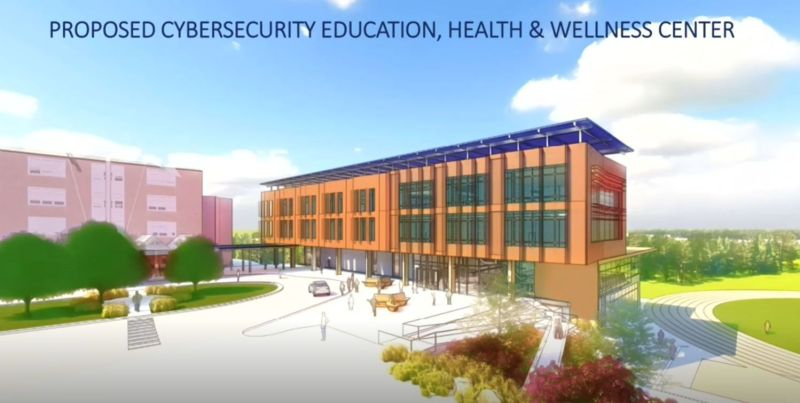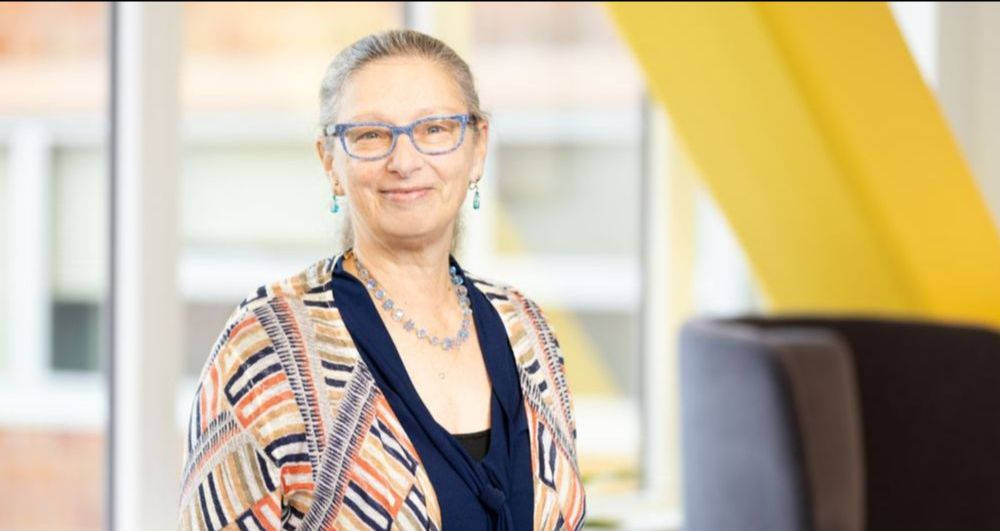We feared this would happen

We feared this would happen
Good Morning,
Max Woolf here, bringing you today’s newsletter.
Last year, our chamber joined a coalition of more than 20 other business associations in unsuccessfully opposing Ballot Question 2, which removed MCAS as a graduation requirement.
Yesterday, we learned that MCAS scores have fallen across the board, confirming what we feared and reminding us why having a way to measure learning matters.
Pedro Martinez, the state’s secondary education commissioner, said there was not one single statewide student group that has bounced back to its pre-pandemic level of achievement in Massachusetts, according to State House News.
Tenth-grade English scores dropped six points from last year and 10 points compared to 2019, while math has fallen three points from 2024 and 14 points from pre-pandemic levels.
Not having a meaningful benchmark deprives us of an opportunity to determine whether we’re doing enough to help our students achieve.
“The distinction we’ve earned over the last several decades of leading the nation is a characteristic that’s becoming unraveled,” Ed Lambert, executive director of the Massachusetts Business Alliance for Education (our chamber is an affiliate) told the Globe. “Other states are recovering from the pandemic, and we don’t seem to be at all.”
MassBay and Wellesley neighbors talk past each other
 |
Opponents dominated a packed community meeting held by MassBay last Thursday about a plan that could bring much-needed housing to Wellesley.
But unlike many development battles in Wellesley, this time, these opponents aren’t likely to have much success.
That’s because the proposed development is on state land and – thanks to the Affordable Homes Act – isn’t subject to the usual town approvals that have stymied many developments in town.
On Thursday, MassBay President David Podell, flanked by representatives from the Healey administration and DCAMM (the state’s real estate office), laid out the pitch: The college needs funding for a gym, soccer field and cybersecurity building. Selling a portion of its land for housing fulfills that aim while satisfying state housing goals.
Residents weren’t convinced. Some urged the college to explore “other funding options.”
When asked if that was still possible, Podell replied, “We have looked into every opportunity.”
Despite the project being largely removed from local control, most of the public comments were consumed by familiar neighborhood concerns: Traffic, conservation, school overcrowding and property values were all recurring topics.
One resident opposed the project by explaining that she “moved to Wellesley because the trees were taller than the buildings,” even though two neighboring properties (MassBay’s campus and the Sisters of Charity building) are already taller than four stories.
The reality is, Wellesley can’t have it all, and at the same time, the college might also fare better if it laid that out more clearly.
For example, it could be time for the state to officially put on the table an offer to preserve a portion of the adjacent MassBay-owned forest as a goodwill gesture in return for increasing housing density at the parking lot.
That would be a win for those looking to preserve a cherished Centennial Park in exchange for creating housing that the town and region desperately need.
The next community meeting is scheduled for Oct. 8 at 6 p.m.
Needham considers relaxing restaurant regulations
Last week, the Needham Select Board heard draft updates that would loosen a host of alcohol regulations for local restaurants.
Top of the list was reversing a 2018 decision that cut back hours. Restaurants would now be able to serve alcohol until midnight, instead of 11 pm, restoring the longer hours that many restaurants have already been granted a waiver for.
Other changes include:
- Eliminating a rule that restaurants must file a new staff roster within 45 days of each new hire (annual reporting still required).
- Codifying the practice of allowing new restaurants to apply for alcohol licenses right away instead of waiting 12 months.
- Permitting alcohol-service training to be completed via Zoom.
- Providing more leniency for first-time violations.
Together, these updates reduce red tape and make opening and operating a restaurant in Needham more attractive.
That’s especially important now, as our restaurant sector continues to struggle. Earlier this year, the BBJ reported that Needham restaurants have seen only a 7% post-pandemic revenue rebound, the lowest of our four communities.
Needham restaurants that wish to provide feedback on the full slate of changes (page 88) can email the Select Board prior to an Oct. 14 public hearing.
Could a 2026 ballot question open the door to starter homes?
For young professionals, teachers and first-time buyers, the dream of owning a home has all but vanished in many suburbs.
Here at the chamber, we frequently highlight how exclusionary zoning has hindered the development of multi-family housing. But that’s only part of the problem. Local rules also dictate what kind of single-family homes gets built, which favors McMansions over more attainable starter homes our communities need.
That’s where a proposed 2026 ballot question comes in. Last month, Wellesley-based housing researcher and senior fellow at the Pioneer Institute, Andrew Mikula, filed an initiative to cap local minimum lot sizes at 5,000 SF.
Today, many suburbs require lots of an acre or more (43,000 SF), effectively outlawing smaller homes and fueling the spread of large single-family houses.
The minimum lot sizes for our community are as follows…
- Needham’s is 10,000 SF
- Watertown’s is 10,000 SF
- Newton's range up to 25,000 SF, though some districts allow 3,500–5,000 SF
- Wellesley’s districts range from 7,500 SF to 20,000 SF
This common-sense proposal is no sure thing — it still needs 75,000 signatures just to reach the 2026 ballot.
Tuesday Grab Bag
- Captain Marden's Seafoods, Peter Mongeau, president of the Wellesley Historical Society, and Sustainable Wellesley will be honored at Wellesley Night, Oct. 15 at Babson College. Our early bird discount ticket offer expires tomorrow (Weds).
- Watertown’s State of the City address will be delivered by City Manager George Proakis and Council President Mark Sideris tonight at 6 p.m. in City Hall. You can stream it live on WCA-TV.
- Developer Bruce Wheeler’s plan to transform Newtonville’s Swedebrogian Church into 31 condos received a thumbs up from the City’s historic commission last week. The largest project under Newton’s MBTA Communities zoning will now proceed to the City’s appointed Planning Board for final approval.
- Congressman Jake Auchincloss will host a virtual conversation on Oct. 6 from 3-4 pm to discuss the impact of President Trump’s tariffs on Massachusetts, featuring insights from the Federal Reserve Bank of Boston.
- The deadline for employers to complete the Massachusetts Economic Competitiveness Survey, designed to help make the business and economic case for solving our state’s housing challenges, is this Friday (Oct. 3).
- The 41st Annual John M. Barry Boys & Girls Club Golf Tournament will be held Mon. Oct. 6 at Charles River Country Club, raising funds to support youth programs that foster mentorship, purpose, and leadership.
- The Asian American Business Council will host a free webinar, Business Planning Made Simple, on Oct. 7, from 9–10:30 am, to help AAPI small business owners with practical growth strategies. The session will be in English with live interpretation in six different languages.
- Elizabeth LaRosee has been appointed Deputy Town Manager/Director of Operations for the Town of Needham, bringing over a decade of municipal experience, most recently from the Town of Randolph. She previously worked at the Needham Free Public Library
- Meet and talk with many of the candidates running for municipal office about important challenges and issues facing Newton, Oct. 4, (4-6:30 p.m.) at “Saturday Afternoon at the Races,” at Newton North High School. Presented by the League of Women Voters of Newton.
Businesses shouldn’t pay for the state’s UI mistake
Last week, the Massachusetts Taxpayers Foundation (MTF) recommended that the state, not employers, cover its own $2.5 billion unemployment insurance (UI) misstep.
This mistake happened when the Baker administration improperly used federal pandemic relief funds to pay for state UI obligations. The Healey administration later negotiated the repayment down to $2 billion.
But the current plan to cover that cost by tapping into the employer-funded UI Trust Fund is, as MTF put it, more than unfair. The state should pay for its own mistake, not private sector employers.
MTF says it looks forward to working with the administration on these reforms.
But that outlook isn’t promising: Senate Ways and Means Chair Michael Rodrigues told a group of Norfolk County business owners at a meeting in Needham last week that he expects the UI Trust Fund, meaning business owners, to make up for the state’s mistake.
Join us in honoring Amy Schectman
 |
Each year at our annual Fall Business Breakfast, we recognize one individual who has gone above and beyond for our communities with the chamber’s highest honor, the RL Tennant Award.
This year’s recipient is Amy Schectman.
Throughout her 40-year career as an affordable housing advocate, policymaker, developer, and organizational leader, Amy has had a profound impact on the communities she serves.
For the past decade she has been the CEO of the nonprofit 2Life Communities for over a decade, during which she has more than doubled the number of communities built and supported by 2Life.
Please join us on Nov. 7 as we salute ’s contributions to our communities.
And that’s what you need to know for today–the end of September–, unless you need why saying “rabbit rabbit” tomorrow will bring you good luck this October.
Public Policy and Government Affairs Manager
Charles River Regional Chamber
617-431-6101
I also value your feedback
